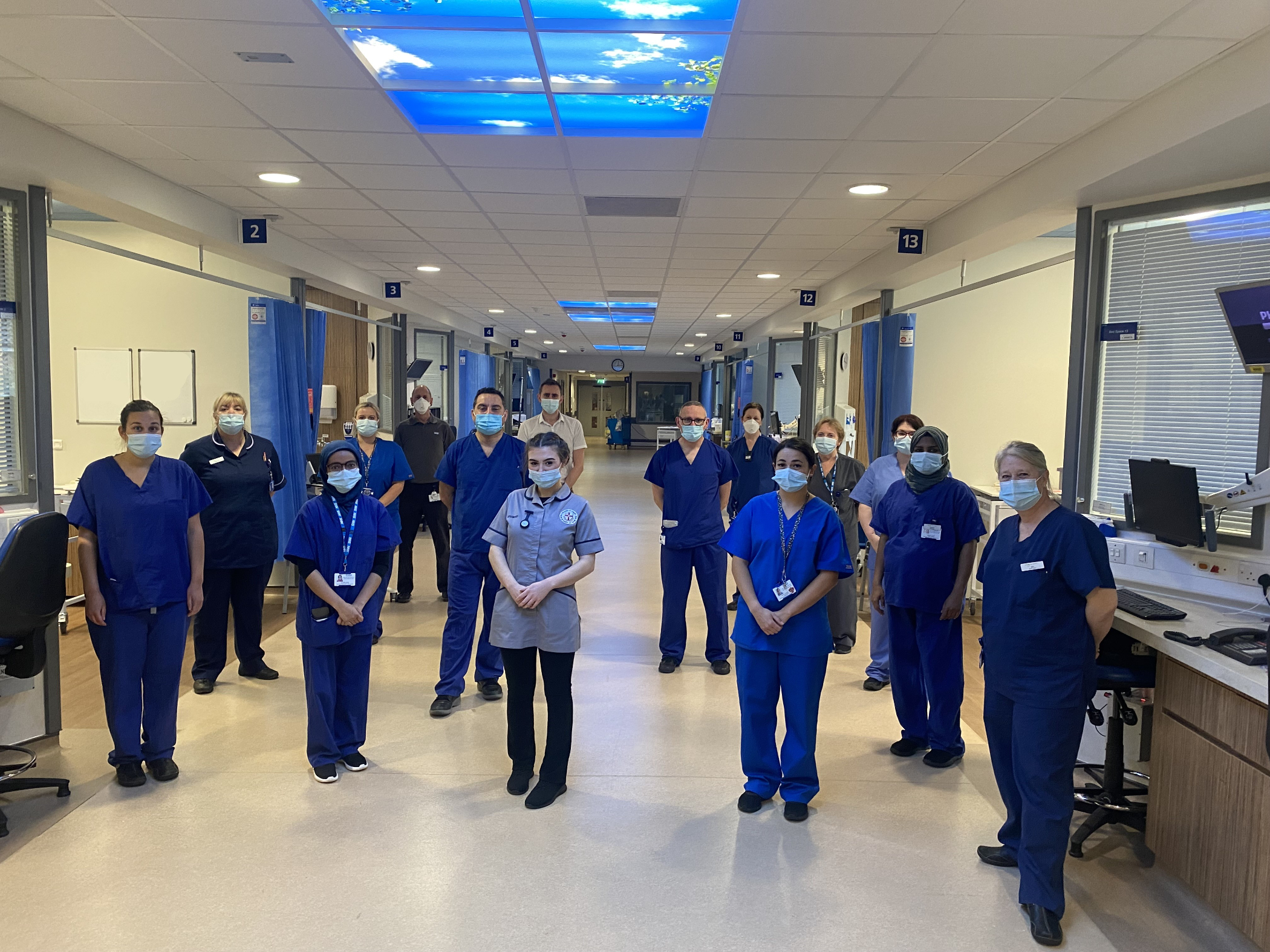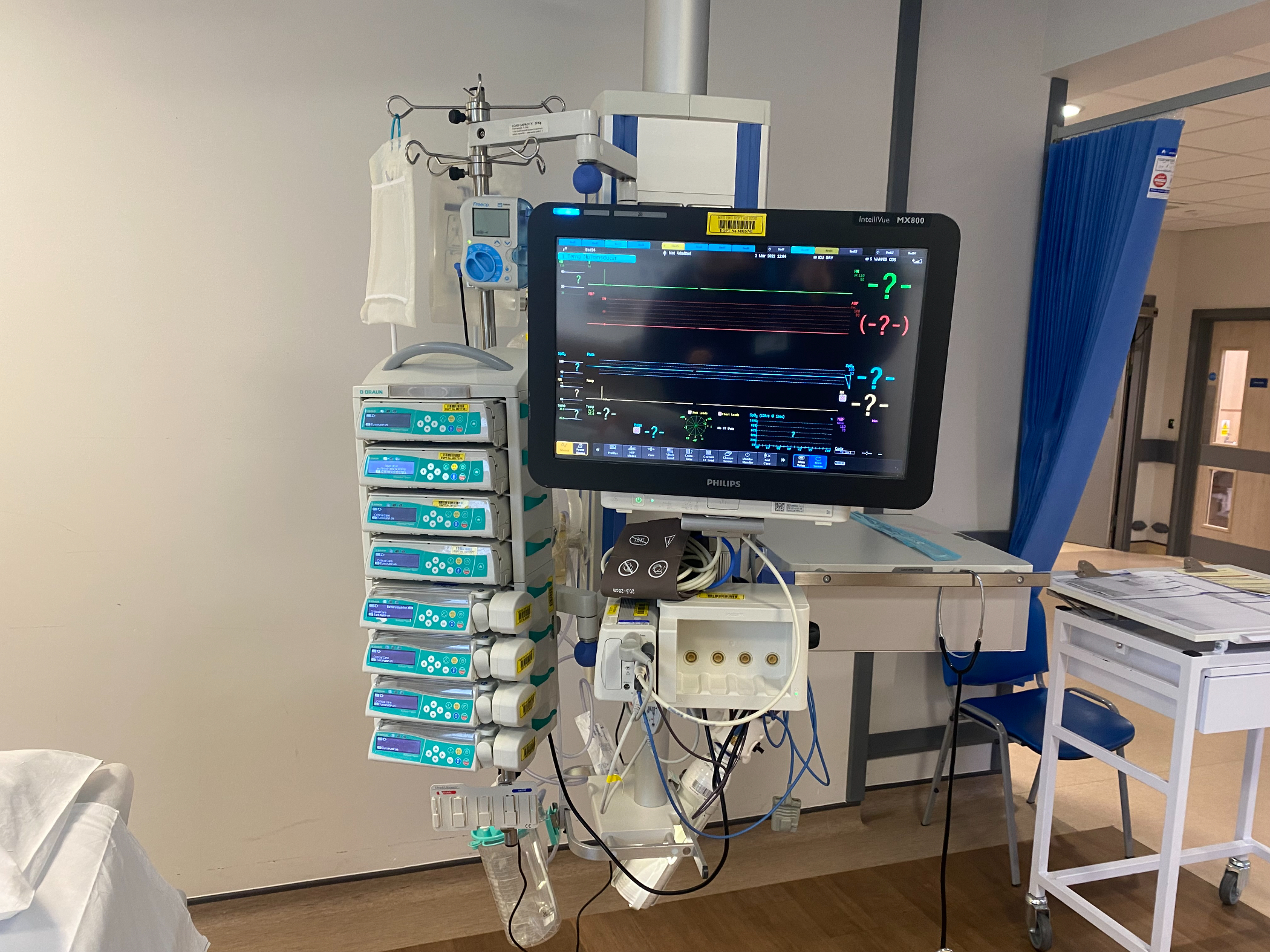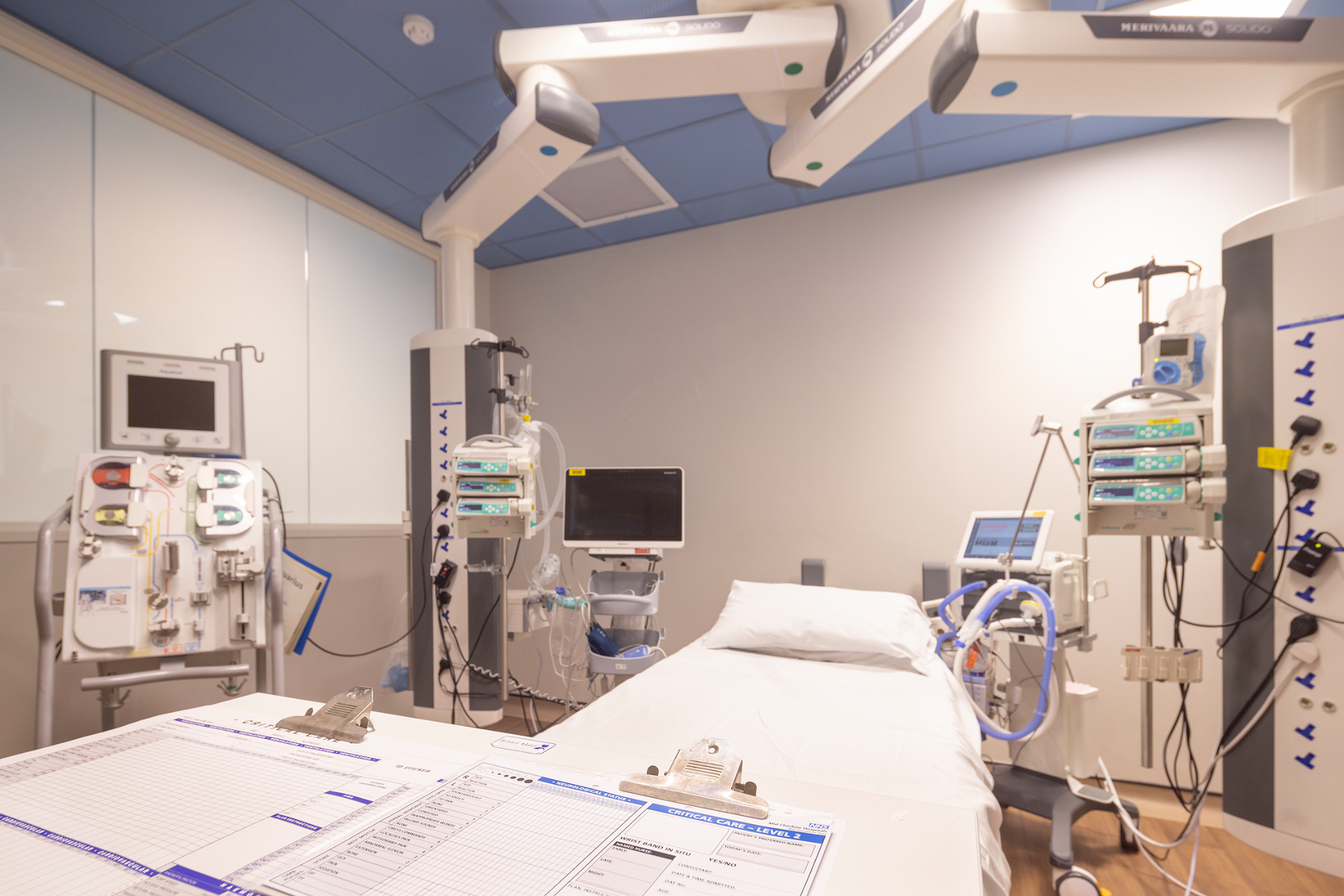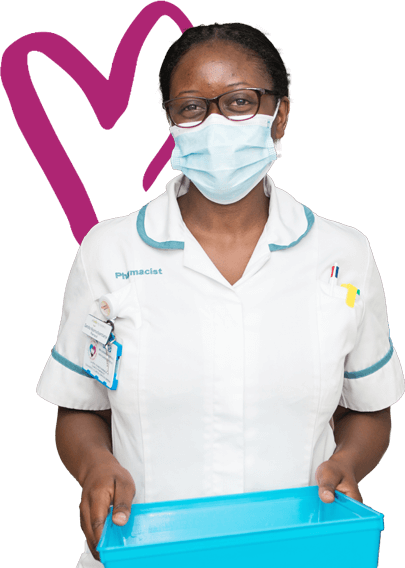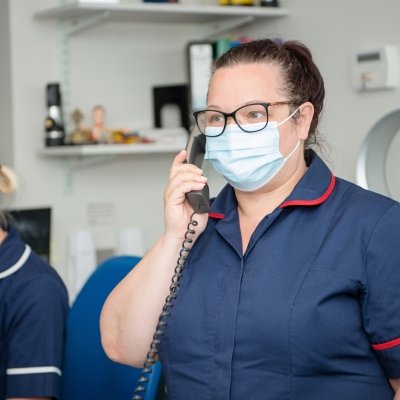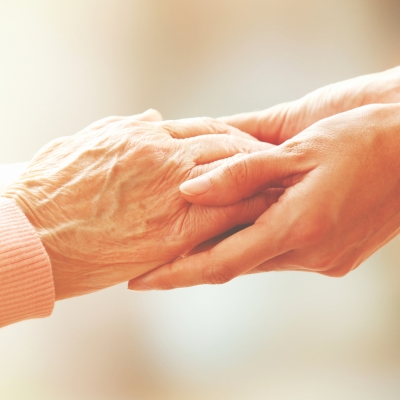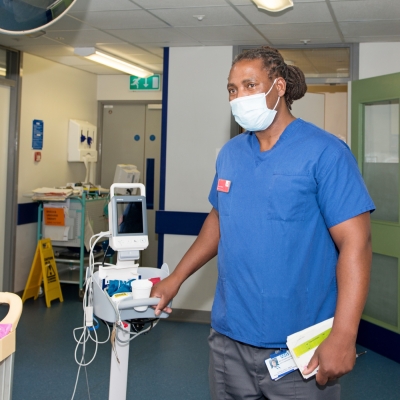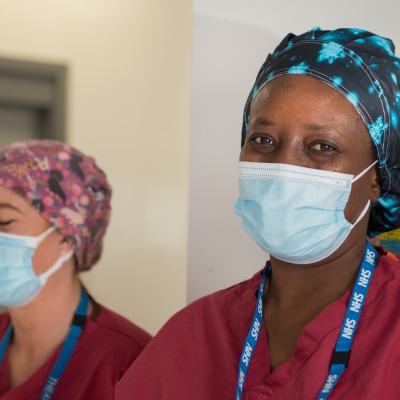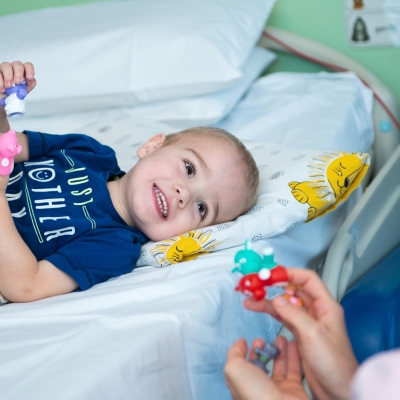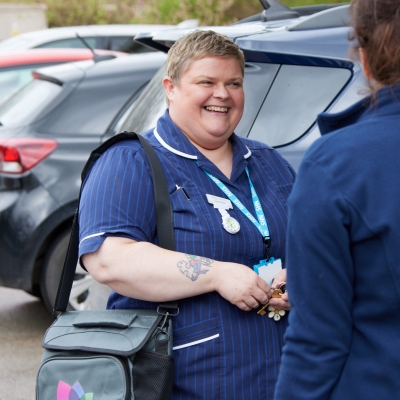The aim of these webpages on our Critical Care Unit (also known as intensive care [ICU]) is to give you some information on how we care for your family member or loved one.
We understand it can be a stressful and emotional time having someone close to you admitted to critical care and we hope this site provides some insight and support during what is often a very challenging period.
What is Critical Care?
 Critical care is also known as intensive care. It provides specialist treatment, close observation and monitoring that cannot normally be provided on a general ward. Patients that are admitted to critical care may require organ support and a higher level of nursing care.
Critical care is also known as intensive care. It provides specialist treatment, close observation and monitoring that cannot normally be provided on a general ward. Patients that are admitted to critical care may require organ support and a higher level of nursing care.
The nurse / patient ratios are higher within critical care than on a ward with one nurse looking after one or two patients depending on the severity of illness. Consistency of the nurse caring for the patient will be maintained wherever possible.
Unit Vision and Values
Critical care is delivered by a multi-disciplinary team working together to provide the best treatment and care. We strive to deliver this with compassion at all times to all patients respecting cultural and religious beliefs and without discrimination.
We work together with families and relatives to ensure that we meet the needs of our patients and continuously look to improve the care that we provide.
Unit Visiting
 We understand the importance both to patients and families of being able to see their loved ones during such a vulnerable time.
We understand the importance both to patients and families of being able to see their loved ones during such a vulnerable time.
We are currently led by national guidance with regards to hospital visiting during the ongoing Covid-19 pandemic. This is to prevent the spread of the virus by limiting the amount of people on the unit and in the hospital at any one time. We hope that normal visiting will resume in the near future as restrictions ease.
Where visiting is limited, we aim to facilitate virtual communication where possible and with consent of the patient. Please discuss this with the nurse looking after your relative.
Phoning the Unit
We ask that, where possible, you allocate one family member to ring and then pass on information to other family and friends. We also ask if you could avoid ringing the unit between 7.30 and 8am, and 7.30 and 8pm, as this is the nurse handover period.
Bed area phone numbers
- Beds 1 and 2: 01270 278431
- Beds 3 and 4: 01270 278432
- Beds 5 and 6: 01270 278433
- Side room 7: 01270 278437
- Side room 8: 01270 278438
- Beds 9 and 10: 01270 278434
- Beds 11 and 12: 01270 278435
- Beds 13 and 14: 01270 278436
We appreciate that family and friends want to know how their relative is doing but please understand we are limited by rules of confidentiality as to the detail that can be provided over the phone without patient consent.
Please speak with the Nurse in Charge of Critical Care if you require additional support or have queries around visiting.
Critical Care Admission
You or your relative may be admitted to critical care from a number of areas including:
- The Emergency Department if you are too unwell to be admitted onto a general ward
- From a ward if your health deteriorates and you need closer monitoring and management
- Directly from the operating theatre or procedure room. This may be planned in advance if you are having a planned operation or complex surgery. You may need to come if you become unwell in the post-operative room whilst recovering and need closer monitoring and management.
Critical Care Leadership Team
Intensive Care Consultants
- Dr Perry Board
- Dr Neil Brooks
- Dr Ged Dempsey
- Dr Helen Langrick
- Dr Richard Lowsby
- Dr Alistair Martin
- Dr Nic Price
- Dr Rob Thornhill
Head of Nursing
- Sian Axon
Matron
- Julie Love
Critical Care Outreach Lead Nurse
- Anna Jones
The Critical Care Outreach Service (CCOS) provides a 24-hour service, 7 days a week throughout the Leighton site, supporting ward staff with the recognition and management of critically ill and deteriorating patients.
The team is led by the Critical Care Outreach Lead Nurse and Critical Care Consultant and the team is comprised of senior nurses with specialist skills and knowledge in critical care nursing, with support from assistant practitioners.
Patients are referred to the service by ward nurses and medical teams. The CCOS nurses will go out to the ward and assess those patients, with the aim being to stabilise and improve their condition on the ward and prevent admission to critical care where possible.
We liaise closely with the team in critical care and if it is felt that a patient would benefit from closer monitoring or specialist intervention then the CCOS will support with the transfer to the critical care unit. Our team of assistant practitioners assist with clinical interventions, such as early commencement of care pathways especially sepsis and acute kidney injury. The assistant practitioners work closely with the CCOS nurse allowing early interventions and treatments.
Follow-up Visits
The transition from critical care to the ward can be stressful for patients and their relatives. Many patients will have no memory of their time in critical care, while others will experience hallucinations or vivid nightmares. Some may also be anxious about going from 1:1 or 1:2 patient care.
To help alleviate some of these anxieties and make the transition smoother, the CCOS will follow up each patient that has been on the critical care unit. There they can assess and support both their physical and psychological needs in order to continue their recovery.
The team continues to support those with ongoing psychological needs through a follow up clinic, where patients, in particularly those who have been ventilated, will have the opportunity to discuss their stay with the Critical Care Outreach Lead Nurse. There are also patient diaries written by the Critical Care team, and when the patient is ready, the CCOS nurse will spend time going through the diary to enable the patient to fill in gaps from when they were critically ill. This can be done either on the ward or in the follow up clinic.
If you have been a patient on the critical care unit, or had a relative there, a good source of information and support is the ICU Steps website:
https://
Education
The CCOS share their skills and knowledge with ward staff by providing a variety of education and training throughout the trust. They deliver formal teaching sessions such as the ‘AIMS’ course and more informal, ad-hoc, ward-based teaching around the deteriorating patient and tracheostomy care.
Critical Care Recovery
Each patient’s journey is different with many steps forward and a few backwards until you are ready to leave critical care.
Recovery and getting back to normal continues once you leave critical care. It is normal to feel anxious about leaving the security of 1 to 1 nursing but this is a positive move and where the rehabilitation and recovery process begins. The process of emotional and physical rehabilitation takes time. Continued support is given on the ward from therapists and dieticians. Patients will also be followed up by the critical care outreach service who will discuss your diaries for critical care.
Asthma UK
A charity dedicated to improving the health and wellbeing of people in the UK whose lives are affected by asthma.
Helpline: 0300 222 5800
Website: www.asthma.org.uk
Bereavement Advice Service
Bereavement Advice Centre is a free helpline and web-based information service provided by Co-op Legal Services giving practical information and advice and signposting on the many issues and procedures that people face after the death of someone close.
Helpline: 0800 634 9494 (Mon-Fri 09:00-17:00)
Website: www.bereavementadvice.org
British Heart Foundation
A charity that gives information and support on the health of your heart.
Helpline: 0300 330 3311
British Association for Counselling and Psychotherapy
For details of counsellors and psychotherapists in your area.
Phone: 01455 883300
Website: www.bacp.co.uk/search/Therapists
Carers Trust
Carers Trust is the largest provider of support services for carers in the UK.
Helpline: 0300 772 9600
Website: www.carers.org
Citizens Advice
The Citizens Advice service helps people deal with their legal, money and other problems by providing free, independent and confidential advice.
Helpline: 03444 111 444
Website: www.citizensadvice.org.uk
The Colostomy Association
Providing support and information to anyone who has a colostomy.
Helpline: 0800 328 4257
Website: www.colostomyuk.org
Critical Care Recovery
An NHS website for patients recovering from critical care, customised for patients in Scotland.
Website: www.criticalcarerecovery.com
Cruse Bereavement Care
The Citizens Advice service helps people deal with their legal, money and other problems by providing free, independent and confidential advice.
Helpline: 0808 808 1677
Website: www.crusebereavementcare.org.uk
Young Person's Website: www.hopeagain.org.uk
Diabetes UK
The largest charity in the UK for the care and treatment of people with diabetes.
Helpline: 0345 123 2399
Website: www.diabetes.org.uk
Headway
A charity that supports people with brain injuries and the people who care for them.
Helpline: 0808 800 2244
Website: www.headway.org.uk
Healthtalk.org
A helpful website covering a wide variety of personal experiences of health and illness. It includes video interviews of people who have been through different illnesses and includes sections for intensive care patients and their relatives.
Website: www.healthtalk.org
Lee Spark NF Foundation
A charity helping those affected by necrotising fasciitis and raising awareness about this condition.
Website: www.nfsuk.org.uk
Meningitis Now
Meningitis Now provides support and information on identifying and recovering from meningitis.
Helpline: 0808 80 10 388
Website: www.meningitisnow.org
Samaritans
Samaritans provides confidential, unbiased emotional support, 24 hours a day, for people who feel distressed, desperate or suicidal.
Helpline: 116 123
Website: www.samaritans.org
Stroke Association
An organisation that provides support and information on strokes and guidance on coping with life after a stroke.
Helpline: 0303 303 3100
Website: www.stroke.org.uk
Talk CPR
Talk CPR's goal is to encourage conversation about CardioPulmonary Resuscitation (CPR) for people affected by life-limiting and palliative illnesses.
Website: www.talkcpr.wales
UK Sepsis Trust
The Trust promotes awareness of sepsis, and provides support to those affected by it.
Helpline: 0800 389 6255
Website: www.sepsistrust.org
